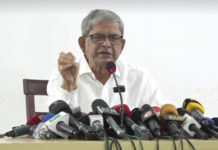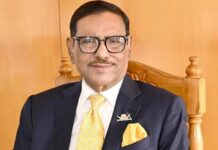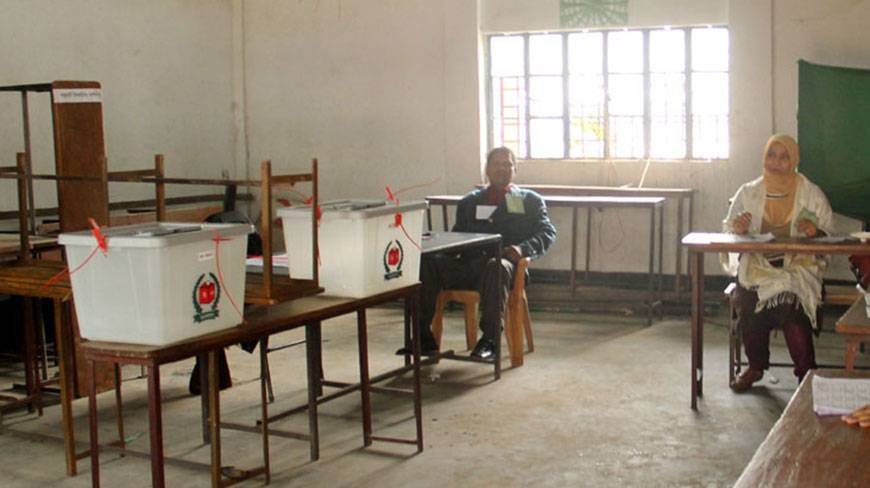What will the govt do about the closed FB accounts?
 Following Facebook’s removal of six Bangladeshi accounts and 9 pages in connection with spreading misleading and fake news ahead of the election, now Twitter has said that it would block 15 accounts.
Following Facebook’s removal of six Bangladeshi accounts and 9 pages in connection with spreading misleading and fake news ahead of the election, now Twitter has said that it would block 15 accounts.
It is said that the persons behind the accounts were ‘misusing this platform in a coordinated way to fulfill their ill intentions.’ Authorities of both platforms said they were investigating the matter. These controversial accounts may be few in number, but we can never be sure of the actual number.
However, the important information is, in both cases, these accounts are said to be aided by the state. The accounts were said to be ‘Linked to State Actors’ and ‘State-sponsored.’ Twitter and Facebook authorities are not considering these to be mere actions of some over enthusiastic government supporters. That certainly indicates the sensitive nature of the issue.
The government, on the other hand, is questioning the motive of the Facebook authorities. Mullah Nazrul Islam, head of the Cyber Investigation Department of CID of Bangladesh Police, questioned the credibility of Facebook’s statement in a BBC interview. Such views of the government about such a sensitive issue can no way be taken positively.
There have been studies and discussions on the relation between democracy and the social media across the world over the past few years. It was assumed that the social media’s role in the democratic movement against autocratic governments was positive during the Arab Spring in 2010.
At a time when the government has established its ‘control’ over all mainstream media, the people will get accurate information from the social media, taking democracy ahead. In the beginning, it served the interests of such movements but gradually it has become a tool to protect the power of the ruling party. It has been used in the rise of populist leaders.
We can recall Narendra Modi’s rise in India in 2014 and the victory of US president Donald Trump with the help of social media.
Everybody knows how the Chinese government has established its direct control on such media. Russian government has taken control of the country’s largest social media platform in 2014. Russia’s own search engine Yandex is not only supported by the government, but also by Russia’s intelligence agencies. They were responsible for the false propaganda and cyber warfare in Ukraine.
Russia has used social media as a means of meddling in 2016 US presidential election. Investigations are still going on about this.
Facebook CEO Mark Zuckerberg acknowledged to the US Congress that several Russian companies sponsored as many as 3,000 advertisements supporting Donald Trump.
A Kremlin-based internet research agency spread fake news through Facebook and Instagram at the time and it reached about 150 million people. Though 3,000 advertisements is not a big deal for US elections, the news made a huge impact on the public.
So it is not always the numbers to be taken into consideration. On top of that, there is no reason to believe that on 15 accounts in Bangladesh are involved in such activities. What is important is they are government sponsored. This is undoubtedly an obstacle to fair and credible elections.
In Bangladesh, there are several examples of promoting fake news from several government websites, spurious news portals and Facebook accounts over the past few years.
Although these news portals do not have many users, the various false propaganda and defamatory news published in such sites against anti-government quarters and dissenters are spread through Facebook, Twitter and Instagram. Unfortunately, such incidents are happening frequently. The purpose of such content is to suppress dissent.
Instead of taking action against such websites, the government is taking action against the opposition. This trend was noticed recently when nearly 54 news sites were closed by the government.
Also, there were incidents of arrests of persons in connection with spreading ‘rumours’ during the student movement in demand of safe roads.
Not only is the government trying to establish its control over cyber space through stringent laws, it now seems to be involved in ‘misusing this platform in an effort to fulfill its interests’.
The Election Commission has already formed a monitoring team to increase surveillance on social media ahead of the election. Director general of the National Identity Registration Wing, Mohammad Saidul Islam, has been appointed as the chief of the team. The team will also include representatives from the police headquarters, the police Special Branch, RAB, Bangladesh Computer Council, Bangladesh Telecommunications Regulatory Commission, and the National Telecommunication Monitoring Centre, as well as a senior maintenance engineer from the election commission.
While they will look into these issues, there are doubts whether or not the team would be able to make good decisions as there are no content experts, election observers and human rights activists on the team. The question is, what action will be taken against the profiles that Facebook or Twitter authorities have blocked.
*Ali Riaz is a professor of Illinois State University. This piece originally published in Prothom Alo print edition has been rewritten in English by Farjana Liakat









